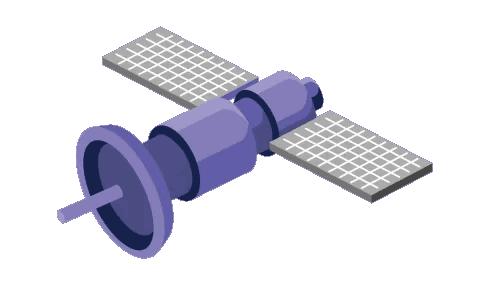
Tracking
Having comprehensive and accurate data on individuals with Rett improves their clinical care, drives the genetic medicine development engine and ensures that clinical trials deliver clear and meaningful results.
Global Registry
The Rett Syndrome Global Registry is a powerful way for you to advance cures. The information you possess about your child is priceless. Put that information to work and help your child and the entire Rett community.

Digital Natural History Study (dNHS)
What is it?
A key aspect of drug development is to have as thorough an understanding as possible of the disease in question. Traditionally that understanding has come from in-person clinic visits over many years where expert doctors gather information about patients and collectively add to the knowledge base of the disease. This type of effort is called a natural history study (NHS). Talk to anyone that works in the biopharmaceutical industry and you will quickly get an appreciation for how important it is to have a rigorous NHS.
The Rett community is fortunate that the National Institutes of Health funded a traditional natural history study for more than a decade, and it taught us a lot about the disorder.
As technology has advanced we now have an incredible opportunity to tap into electronic medical health records. By gathering and consolidating years of existing medical records in one fell swoop we can create a comprehensive and accurate dataset to complement and enhance the traditional NHS.
The digital natural history study (dNHS) will provide detail on every medical visit and hospitalization, all lab work, and all medications without relying on caregivers’ memory or doctors asking the right questions.
We initiated a pilot study with technology company Ciitizen to gather medical records from an initial cohort of people with Rett which has now expanded to a dataset of 140 individuals. We are eager to continue recruiting for this study since the more records we gather the more accurate and valuable the Rett dNHS will be.
Anonymized and aggregate data will be licensed to biopharma companies to aid in their drug development efforts. Every time your child's data is shared you will receive financial compensation. The latest licensing of data resulted in payments of $400 per patient. And RSRT receives the same amount. It's a win win for all!
Ciitizen
Digital Natural History Study (dNHS)
We’re recruiting patients to participate in the digital natural history study for Rett syndrome. In addition to contributing anonymous medical data to advance a cure for Rett, by participating you will:
- Have full control of your child's medical records, organized all in one place
- Search medical records for key data
- Easily share records with medical providers
- Help speed progress in research for a cure
- Receive financial compensation every time a company licenses the medical data, the latest compensation was $400 per patient
Signing up takes 10 minutes. Currently only offered in the US.
Don't let your child's medical records languish unused. Put them to work for the benefit of the entire Rett community.

dNHS Update
In this video, our Rett experts, Bernhard Suter, MD, medical director of the Rett Center at Texas Children’s Hospital and Cary Fu, MD, medical director of the Rett Syndrome Clinic at Vanderbilt Children’s Hospital, present preliminary information from the study and explain how the data is reconciling with the traditional natural history study that spanned 15 years and included over 1,000 patients.
There is power in numbers, so we encourage as many parents as possible to join and help accelerate the journey towards a cure!
Biosensors
Getting Better Data
Rett clinical trials, to date, have relied on parent and clinicians responding to questionnaires and not on measuring symptoms directly in patients.
Relying on parents and clinicians to interpret how the patient is feeling is problematic because questionnaires are subjective and vulnerable to placebo effect.
Our biosensor initiative aims to develop objective measures of Rett symptoms that evaluate breathing, sleep, oxygen saturation, heart rate variability, and movement directly in patients.
Our goal is to use these biosensors as tools to improve medical care and support clinical trials by providing irrefutable data on whether drugs and genetic medicines are effective.
VIBRANT
A New Rett Biosensor Study
Our VIBRANT (Validating Innovative Biosensors for Rett Autonomic Symptom Tracking) study tests several wearable FDA-cleared biosensors and the Emerald sensor. The purpose of the study is to create reliable objective measurements of Rett syndrome symptoms, including sleep, breathing, heart rate, and oxygen saturation. Emerald will also be used to measure movement.
Your participation could help revolutionize how we conduct clinical trials and how we manage care for people with Rett.
Biomarkers
Why are Biomarkers so important?
A biomarker is an objectively measured and evaluated characteristic that indicates normal biological processes in the body. Examples of biomarkers include cholesterol for heart health and blood pressure for stroke risk.
They are crucial to developing therapies because they’re objective outcome measures that help researchers understand whether or not a therapy is working. They also guide dose selection for treatments, help researchers select the most suitable individuals for a treatment or study, and assess safety.
Without proper biomarkers for Rett, our ability to assess whether a treatment is working is limited to the measurement of symptoms and/or improvement in function.
Symptom and function improvements can be determined in various ways, however they could take a relatively long time to improve.
The establishment of Rett-specific biomarkers would indicate if treatments are effective much earlier by detecting changes at the cellular level. We can achieve this by testing bodily fluids and tissues, and testing physiological processes.
Treatments that affect MECP2 expression in the brain are likely to be difficult to measure without taking a brain biopsy, which is invasive and not a desirable option. Our current efforts are focused on identifying a cellular read-out in a biofluid such as saliva, blood, urine, or spinal fluid.
Victor Faundez, PhD
Emory University
Dr. Faundez is taking a unique and comprehensive approach to identify biofluid biomarkers. By analyzing Rett mouse and rat models, along with human neuronal cell culture and Rett patient spinal fluid and blood, he's identified a set of overlapping cellular read-outs that correlate across Rett disease models and patients. This biomarker data, when combined and confirmed in more than one model system, strengthens the likelihood that a human read-out will be accurate and sensitive to changes in MECP2.

Recognizing the importance of biomarkers, we’re building a
consortium of investigators to collaborate on this.




